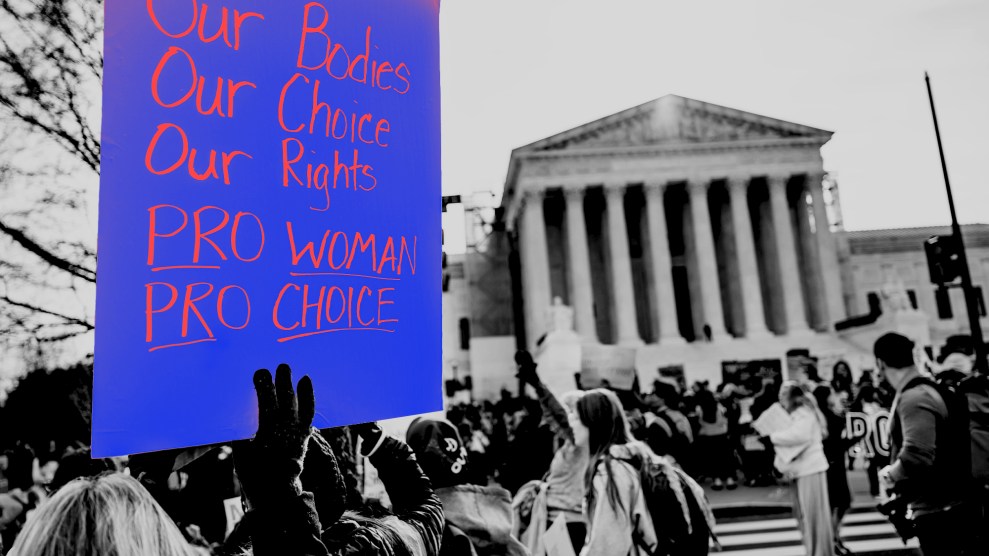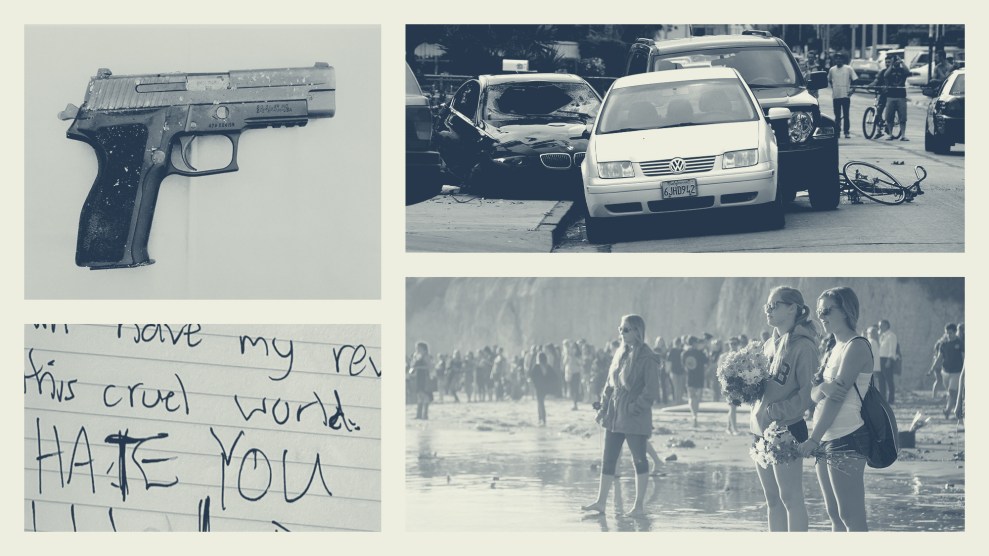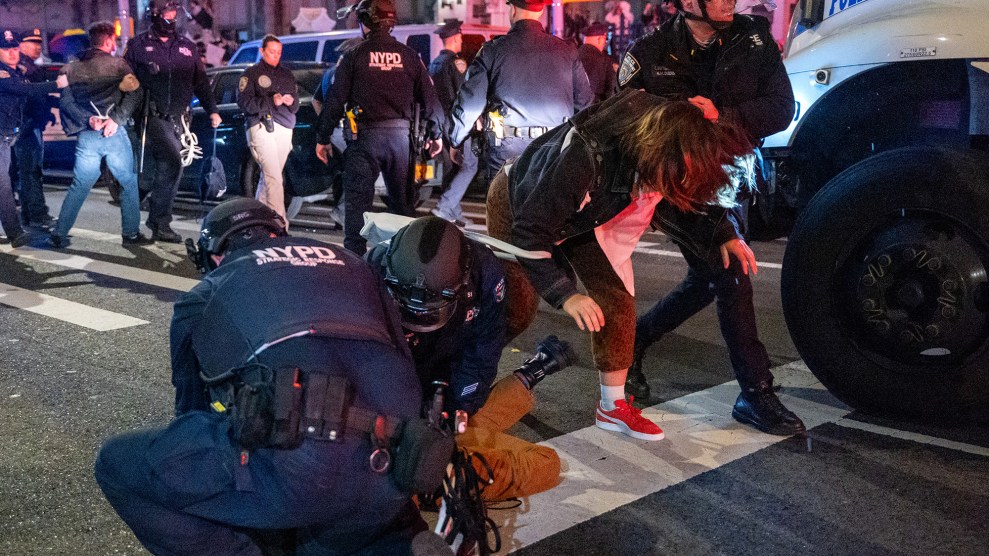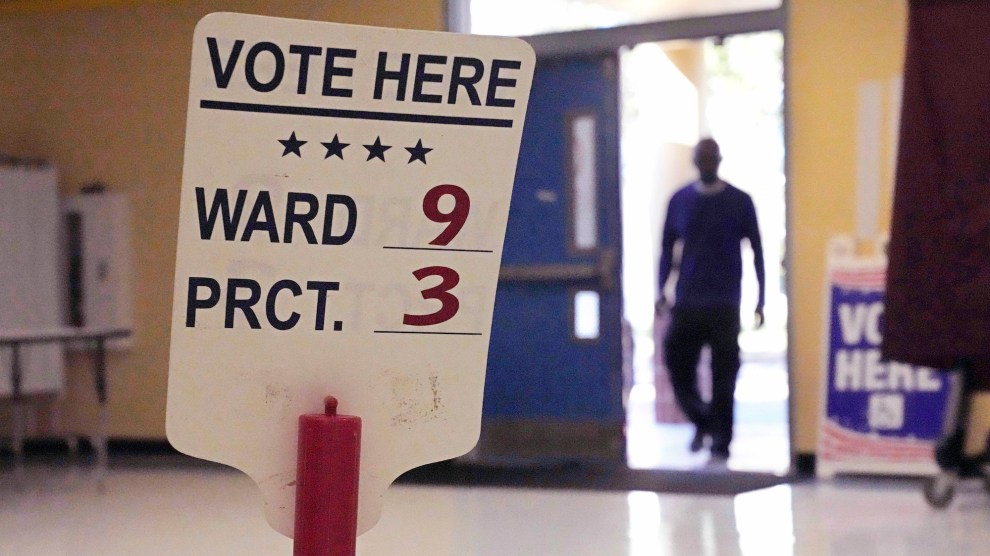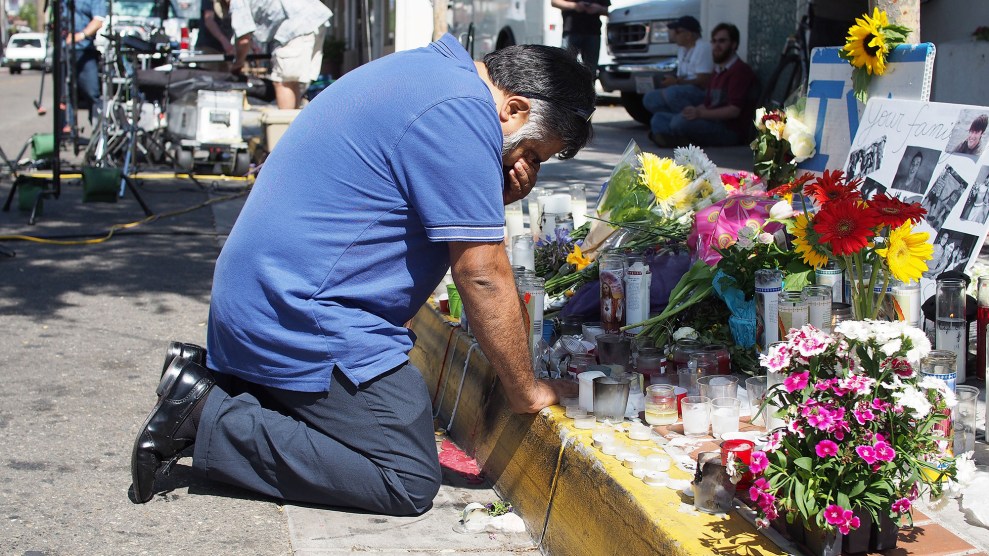As the Bush administration comes to a close, the question of what the president got wrong is probably best answered with a short list of what he got right. It’s a tough record to compile. On the domestic policy front, many of the president’s signature initiatives, including No Child Left Behind and Social Security reform, flopped, while the results of others, including Bush’s tax cuts, remain ideologically fraught. On the international scene, even the administration’s less bellicose attitude toward diplomacy of late (talks with Iran, for example) has done little to neutralize the chaos wrought by the invasion of Iraq, the foreign policy effects of which extend well outside of Mesopotamia. Even so, the president has accomplished some positive things along the way, though even these come with caveats. Herewith:
Humanitarian Aid in Africa
In his 2003 State of the Union address, President Bush announced the President’s Emergency Plan for AIDS Relief (PEPFAR), a $15 billion global program to fight HIV/AIDS—the largest international effort in history created to fight a disease. In July 2008, Congress passed a $48 billion reauthorization that adds significant funding for tuberculosis and malaria. Frequent administration critic Sen. Joe Biden (D-Del.) has called PEPFAR “the single most significant thing the president has done.”
The effort is part of Bush’s emphasis on foreign aid, particularly within Africa. In the president’s first term, the US more than doubled development assistance to Africa and helped secure $34 billion in debt relief for 19 African countries. Today, foreign aid across the globe is three times what it was upon Bill Clinton‘s departure, though it is still lower, as a percentage of GDP, than most developed nations.
But PEPFAR, the centerpiece of Bush’s Africa outreach, has come under considerable criticism. Thousands of Africans get free antiretroviral drugs that would otherwise cost thousands of dollars per month, but the White House has insisted that huge chunks of PEPFAR’s budget go to abstinence-only education, and that none of it go to programs that promote needle exchanges and condom distribution.
Tsunami Relief
Before President Bush got Katrina wrong, he got the Indian Ocean tsunami right. After an initially sluggish response, he appointed presidents Bill Clinton and George H.W. Bush to lead fundraising efforts, and eventually one-third of all US households donated to the relief effort. The median contribution, he said, was less than $100. In total, Americans donated $700 million, which was matched by $950 million more from the federal government. Sixteen thousand US military personnel, dozens of US ships, and more than 100 aircraft were dedicated to tsunami recovery, at a cost the State Department estimates at $5 million a day. By comparison, $114 billion was budgeted for Katrina recovery. The war in Iraq costs more than $2 billion every week.
Marine Protections
Announcing his 2006 decision to designate a group of remote Hawaiian islands as the world’s largest marine reserve, President Bush said, “It’s larger than 46 of our 50 states, and more than seven times larger than all our national marine sanctuaries combined. This is a big deal.”
And indeed it was. Even environmentalists applauded the administration’s decision. The area is home to 7,000 species of marine life, including endangered Hawaiian monk seals and threatened green sea turtles. By 2011 diving in the area will be regulated and sport and commercial fishing will be eliminated.
The problem? The Bush administration followed the designation by slashing the cleanup budget in the area from $2.1 million in 2005 to just $400,000 a year through 2008. As a result, debris removal is no longer keeping pace with the 57 tons of garbage that ocean currents are estimated to bring into the area each year. Before the designation as a protected area, 102 tons of debris were being removed annually, meaning the area was getting cleaner. Today, just 35 tons are being removed each year, meaning it is getting dirtier.
And there is, of course, one final fact. The administration took no meaningful action on global warming over the course of its eight years, which may render all of its scant environmental good deeds moot.
Executive Branch Diversity
President Bush has appointed more women and minorities to high-level posts than any other president in history. Everyone can point to his two African American secretaries of state, Colin Powell and Condoleezza Rice, as well as his Hispanic attorney general, Alberto Gonzales. But a number of lesser-known Cabinet secretaries also broke the old-boy mold. His commerce secretary, Carlos Gutierrez, is a Cuban-born businessman. His past and present transportation secretaries have been an Asian American man (Norman Mineta) and a woman (Mary Peters). His education secretaries have been an African American man (Rod Paige) and a woman (Margaret Spellings). His labor secretary, Elaine Chao, was the first Asian American woman in US history to be appointed to a Cabinet post.
Unfortunately, Bush’s diverse picks did not always do the country proud. Gonzales presided over the politicization of the Department of Justice and provided the administration with a legal rationale for detainee torture. Former Housing and Urban Development chief Alphonso Jackson, another Bush hand from Texas, allegedly used his post to hand out contracts to friends and political allies. He left office under investigation by an inspector general, the FBI, and the Justice Department.
Correction: Due to an editing error, the original version of this story was titled “Five Good Things Bush Has Done.” The author was only able to find four. We regret the fuzzy math.
